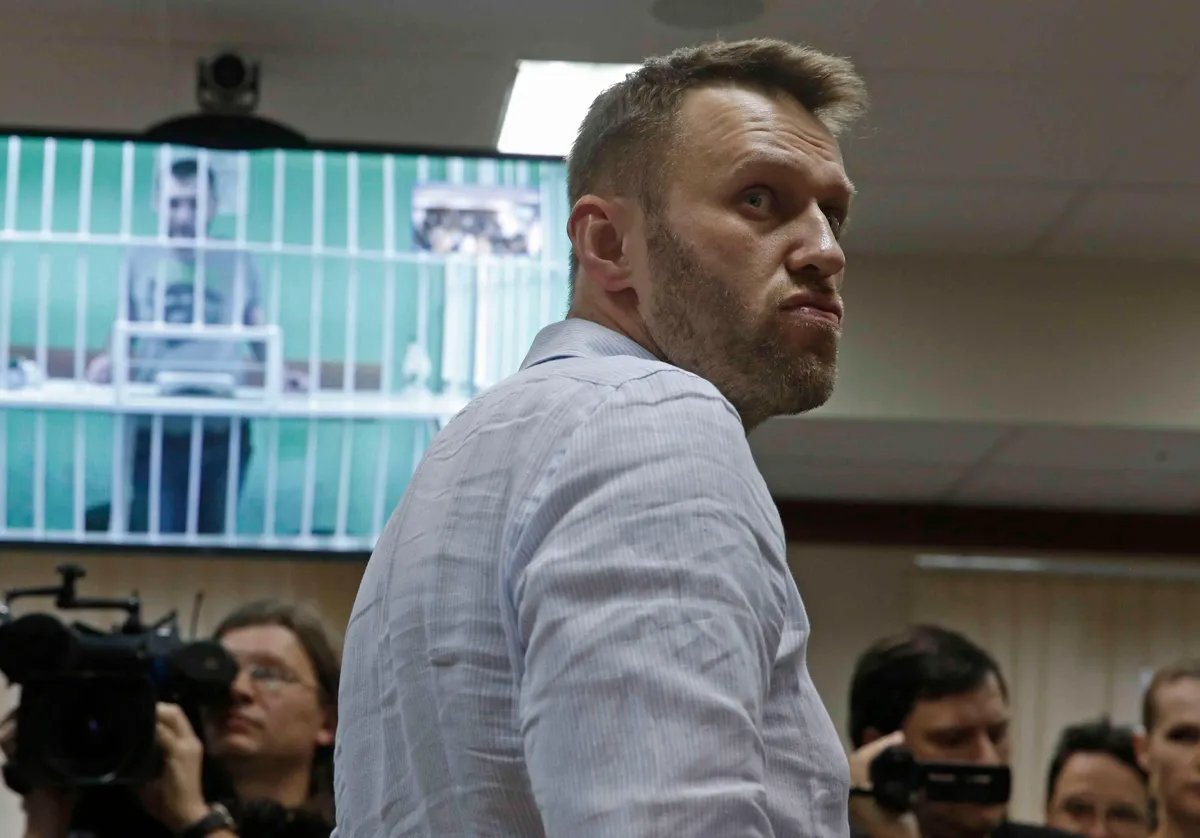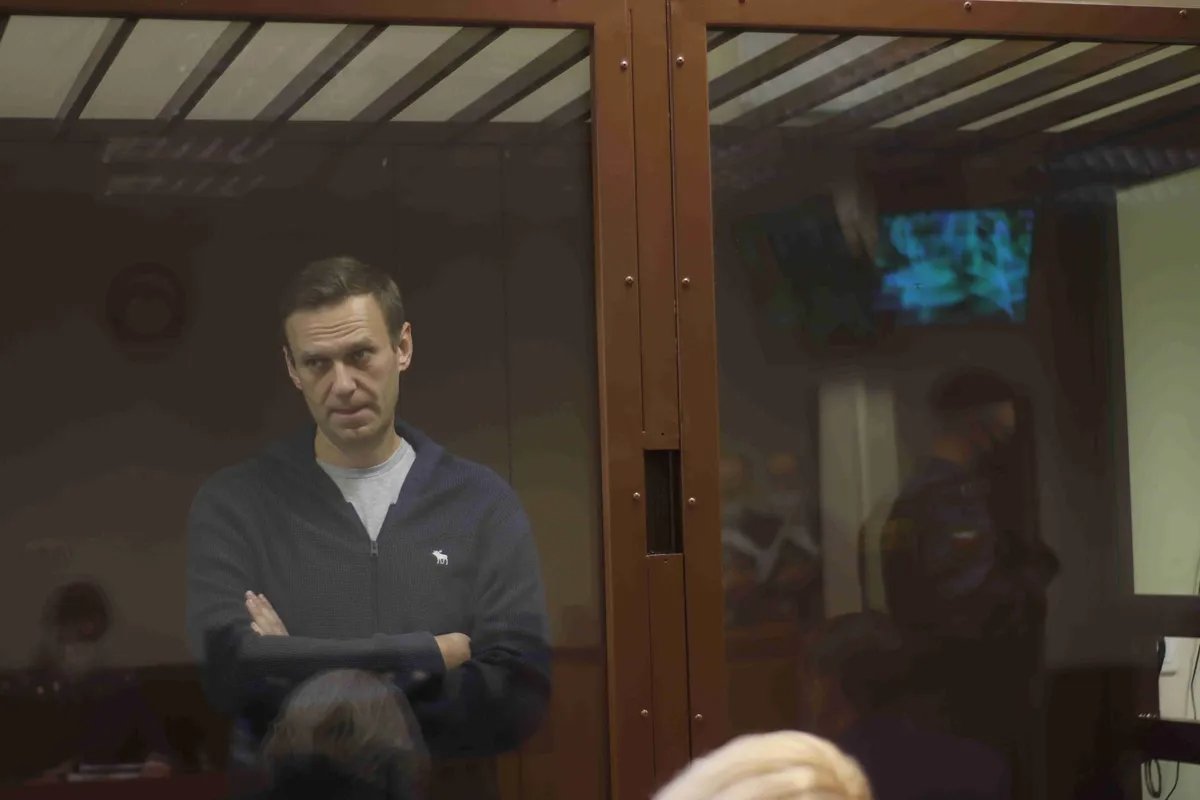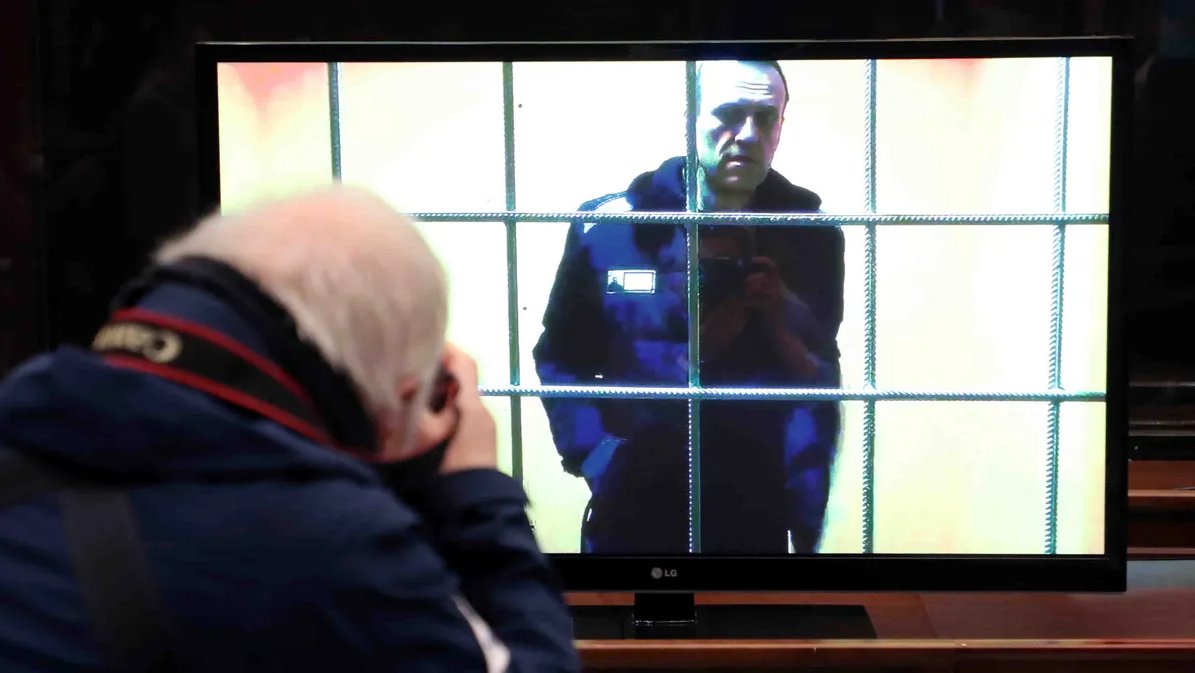On 6 June, a preliminary hearing in the new case against Alexey Navalny was held at Moscow City Court. The politician is accused of a litany of offences under six different articles of Russia’s Criminal Code, including “calling for extremism” and “rehabilitating Nazism”.
Navalny has been in prison since January 2021. During that time, numerous criminal cases have been brought against his team, each of which may be used either to extend Navalny’s sentence or to bring new charges against his supporters. Novaya-Europe has compiled a guide to all the known criminal cases against Navalny so far.
Yves Rocher
In late 2012, Russia’s Investigative Committee opened a case against Alexey Navalny and his brother Oleg on suspicion of large-scale fraud and money laundering. According to investigators, between 2008 and 2011, a company named Main Subscription Agency — which the Navalny brothers established through Cyprus-based firm Alortag Management Ltd — embezzled 55 million rubles (approximately €1.37 million at the time, based on the average exchange rate in 2012) from the Russian subsidiary of Yves Rocher, with which it had entered into a contract for the transfer of goods. According to the investigation, the services of Yves Rocher were provided at an inflated cost and through an intermediary, as Main Subscription Agency did not have the necessary resources. On 30 December 2014, Alexey and Oleg Navalny were found guilty of fraud and money laundering. Oleg was sentenced to three and a half years behind bars, while Alexey was given a suspended sentence of the same length.

Alexey and Oleg Navalny during their trial in the Yves Rocher case at Moscow City Court, 2015. Photo: EPA / SERGEI CHIRIKOV
Navalny returned to Russia in January 2021 following treatment at a German clinic for poisoning with a substance from the Novichok group, as established by the Organisation for the Prohibition of Chemical Weapons. On 17 January, Navalny’s plane was diverted from its intended destination of Moscow’s Vnukovo airport and landed at the city’s Sheremetyevo airport, where hundreds of supporters and journalists had gathered.
Navalny was detained as he passed through passport control with his wife Yulia, and subsequently arrested the next day.
On 2 February, Moscow’s Simonovsky District Court granted the request of the Federal Penitentiary Service to make Navalny’s suspended sentence a custodial one.
Slander against a World War II veteran
In the summer of 2020, Russia’s state-run RT television channel released a promotional video encouraging Russians to vote in favour of amendments to the country’s Constitution which would allow Vladimir Putin to stay in power until 2036. The video featured an appearance from a World War II veteran, Ignat Artyomenko. Upon its publication, Navalny criticised the video campaign, tweeting: “Well, here they are. It has to be said, so far the team of corrupt lackeys looks pretty weak. Look at them: they’re a disgrace to the country. People with no conscience. Traitors.” On 15 June 2020, the Investigative Committee opened a defamation case against Navalny. The investigation found Navalny’s words to contain “false information discrediting the honour and dignity” of the veteran Artyomenko who, according to his relatives, was diagnosed with coronary heart disease “because of nerves” immediately after the opposition leader’s tweet.
On 20 February 2021, Moscow’s Babushkinsky District Court ordered Navalny to pay an 850,000-ruble (€9,500 at the time) fine and, taking into account his conviction in the Yves Rocher case, sentenced him to two years and five months behind bars.

Alexey Navalny during his trial for defamation of veteran Ignat Artyomenko, 12 February 2021. Photo: Moscow Court Press Service / Anadolu Agency / Getty Images
Fraud and contempt of court
Once Navalny was imprisoned in the Pokrov Penal Colony in Russia’s Vladimir region, another two charges were brought against him: one of fraud (allegedly for embezzlement of funds donated to his foundations and non-profit organisations) and the other of contempt of court for insulting judge Vera Akimova, who sentenced him in the defamation case against Artyomenko.
In late 2020, the Investigative Committee reported that a case had been initiated against Navalny on the alleged misuse of over 356 million rubles (approximately €3.9 million at the time) worth of donations made to a number of his non-profit organisations. According to investigators, Navalny spent the funds on “acquiring personal property and material assets, and paying expenses”.
The second case concerned insulting judge Akimova. During his trial in Moscow’s Babushkinsky District Court, Navalny actively argued with Akimova and received numerous warnings from her.
Navalny said that the court session reminded him of the interrogation by a Nazi commandant which veteran Artyomenko had recounted in his testimony, and asked for permission to address the judge as “Obersturmbannführer” rather than “Your Honour”.
The two cases were investigated separately, but before going to court they were merged into one proceeding. The trial took place at an off-site session of Moscow’s Lefortovo Court at the Pokrov Penal Colony. As a result, Navalny was sentenced to nine years behind bars in a strict-regime penal colony and fined 1.2 million rubles (€10,380 at the time of the ruling on 22 March 2022).
The ‘terrorism case’ and disrupting the penal colony
This April, Navalny said that an investigator had separated charges of “terrorism” against him into a new case. The Investigative Committee has not yet officially announced this, so it is not yet clear what exactly Navalny is accused of.
In October 2022 it was reported that a criminal case was being investigated against Navalny and his associates Leonid Volkov and Ivan Zhdanov on charges of publicly inciting terrorist activity and rehabilitating Nazism over the internet. According to Navalny, this “terrorism case” is linked to statements made by members of his team in a regular political programme on their YouTube channel. The investigation alleges that Navalny himself acted as the leader of a “criminal group”.
At the same time, Navalny’s lawyer Vadim Kobzev said that staff at the strict-regime penal colony in Vladimir region where the politician is serving his sentence tried to provoke Navalny so that yet another case could be brought against him. An inmate who Navalny described as having “big hygiene problems” was moved into the same cell as him. On that occasion, the inmate “was reduced to a completely animalistic state”. “There was such a smell in the cell that it was impossible to enter it. Navalny refused to enter, and told the administration (on video) that he was being provoked,” Kobzev wrote.
Kobzev is certain that prison staff deliberately tried to provoke Navalny to attack his new cellmate so that a new case could be opened against him. As Navalny wrote previously, prison rules dictate that he must drive such a prisoner out of the cell by threatening or beating him. The colony’s deputy head of operations and a group of operatives first threatened Navalny, before calling in a response team wearing bulletproof vests and helmets, said Kobzev.
After that, Navalny was physically assaulted and dragged into the cell, Kobzev explained: “During this, Navalny, who put up no resistance, was kneed in the groin (also recorded on video). Once in the cell, Navalny did not use violence against the cellmate, but grabbed him by the scruff of the neck and dragged him towards the door.”
The response team subsequently grabbed Navalny and pinned him against the wall. The colony administration, which was nearby, then “happily informed Navalny that a criminal case would be opened against him under Article 321 of Russia’s Criminal Code” (disrupting the activity of detention facilities).
The big ‘extremist’ case
In July 2021, Moscow City Court declared Navalny’s Anti-Corruption Foundation and other structures of his team extremist organisations, and in September of that year, the Investigative Committee opened a case against the politician and his associates for creating and participating in an extremist community, while also adding two more cases for inciting extremism.
According to the investigation, Navalny had created a community whose aim was to “discredit the state authorities”, and his associates called for “extremist and terrorist activities”.
Both Navalny and his associates — Volkov, Zhdanov, and “other individuals” who had left Russia — were accused of leading an extremist community. His team members Lyubov Sobol, Georgy Alburov, Ruslan Shaveddinov and Vyacheslav Gimadi, who had also fled the country, were accused of participating in it.
All these “extremism” cases were merged into one proceeding together with the other criminal cases against Navalny. He is also accused under the rather exotic article of establishing a non-government organisation infringing on the rights of citizens. Cases under this article are very rare and are mostly filed against the leaders and members of religious sects.
The investigation considers the activities of the Anti-Corruption Foundation, which Navalny ran together with Zhdanov, Volkov, and “other individuals”, to have incited social discord, political hatred, and hostility towards government officials; to have obstructed the lawful activities of government agencies; and to have encouraged people “to commit various unlawful acts”.
A criminal case on the above charges has already been filed with Moscow City Court. Navalny will also be tried under three other articles: using his official position to fund extremism, inducing minors to commit dangerous acts, and rehabilitating Nazism.
As well as Navalny himself, the case also involves Daniel Kholodny, former technical director of the Navalny LIVE YouTube channel. Kholodny is in pre-trial detention on charges of participating in and financing extremist activities. The case will be heard by judge Andrey Suvorov, and Navalny could face up to 30 years in prison on multiple sentences.
The following message from Navalny was published on his social media: “The Prosecutor General’s Office has officially provided me with 3,828 pages describing all the crimes I’ve committed while already imprisoned. The trial on them will start on May 31. Even though the size and amount of these volumes clearly shows that I'm a devious and persistent criminal, I won't be able to learn what exactly I’m being accused of. Normally, they give you your indictment and say: sit down and read it. My indictment, however, was confiscated by the colony administration, because it's a prohibited item in the SHIZO [solitary confinement]. The list of allowed items includes a mug (1 piece) and a book (1 piece), but a convict’s indictment is not on it. And no one cares if you’re being trialed, facing up to 30 more years and would like to find out what they’re accusing you of and how they’re proving it.”
Novaya-Europe is monitoring the trials.
Join us in rebuilding Novaya Gazeta Europe
The Russian government has banned independent media. We were forced to leave our country in order to keep doing our job, telling our readers about what is going on Russia, Ukraine and Europe.
We will continue fighting against warfare and dictatorship. We believe that freedom of speech is the most efficient antidote against tyranny. Support us financially to help us fight for peace and freedom.
By clicking the Support button, you agree to the processing of your personal data.
To cancel a regular donation, please write to [email protected]

